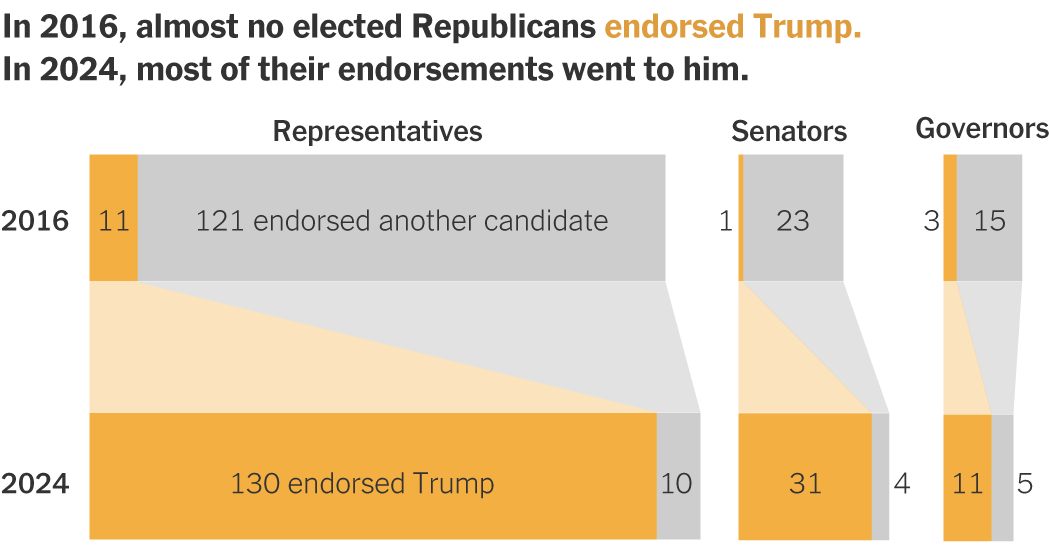It was almost 15 months ago that The New York Post published a full-page cover photo of Ron DeSantis with the headline “DeFUTURE.” His 19-point victory in the Florida governor’s race was one of the few bright spots of the 2022 elections for a weary Republican elite, which was desperately looking to move on from Donald Trump after his handpicked candidates cost the party key Senate seats.
A year later, as Mr. DeSantis’s presidential campaign stalled, at least a handful of G.O.P. megadonors found new hope in Nikki Haley, with the Koch network announcing millions of dollars in support of her presidential campaign.
It would be fair to say that the project has fallen flat: Mr. DeSantis suspended his presidential campaign on Jan. 21, and Ms. Haley’s hopes have now dwindled to a thin thread after her loss in New Hampshire.
By Donald Trump and his allies, this primary will be portrayed as a victory over a Republican establishment with which he had been at odds for years. But although Mr. Trump has routinely positioned himself as a political outsider, it is clear — now more than ever — that he has become the Republican establishment, and the party’s fate increasingly seems inextricably tied to his.
The former president now controls the Republican Party by virtually every conceivable measure. He has a commanding lead in fund-raising and polling. His policies are a beacon to which most conservative lawmakers orient themselves in affairs both foreign and domestic. His endorsement remains the single most coveted asset that any Republican could hope to brandish in a primary race, and he has already received support from an overwhelming majority of prominent elected Republicans.



I’m not so sure. The one data point that runs against your theory is that while Republican gerrymandering can be attributed to GOP wins in many races, in places like North Carolina statewide races are still going for them by relatively wide margins. In 2022, Ted Budd won a Senate seat with a +3 point margin, despite Democrats holding a nationwide polling advantage in the post-Roe era. 2022 NC House races saw 57% of votes to go Republicans, and NC Senate races saw nearly 59% of votes go to Republicans. The 2022 NC Supreme Court race gave the Republican a +5 point margin. Their political future might be shaky for nationwide races and in particular swing states, but in the US Senate where they have the structural advantage of representing open land, and in Congressional races where their influence in certain red state houses can translate upward, they’re still very solidly in control and under no pressure to change course.